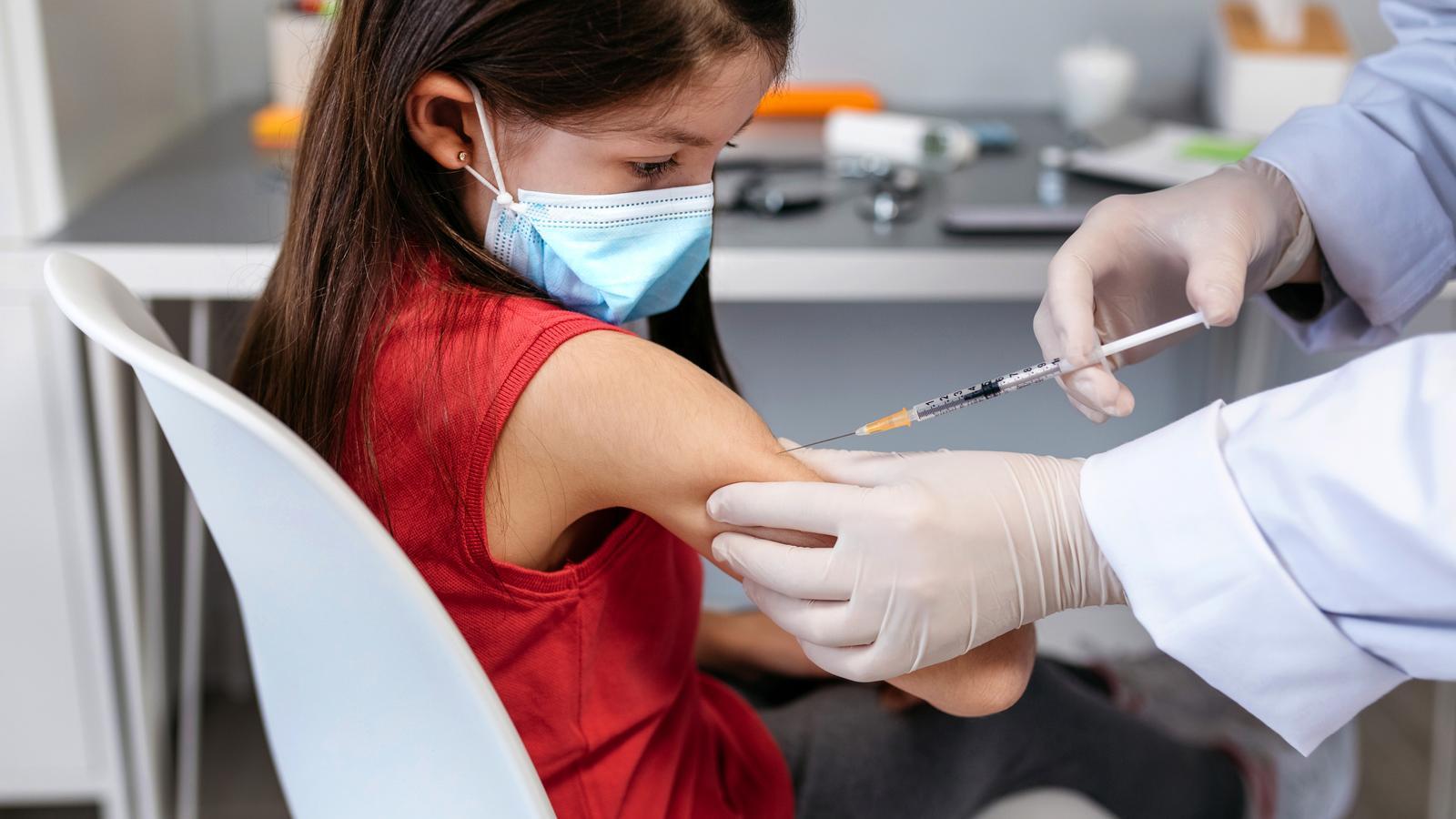Vaccinating children is key to achieving herd immunity
Collective protection also needs to include children under the age of 19, who make up 20% of the population


BarcelonaCovid-19 vaccines are already being tested in adolescents and children under 12. Pfizer has announced this week that their vaccine is 100% effective in boys and girls between the ages of 12 and 15, and both Moderna and AstraZeneca are already being tested in adolescents and children under 12. Janssen has begun testing its preparation in 12 to 17-year-olds, and hopes to do so soon in younger children. The Johnson & Johnson subsidiary is currently recruiting volunteers in Spain and the UK. "It is a phase II trial in which various dosages and administration patterns will be evaluated", explains Alberto Borobia, coordinator of the central unit of clinical research and clinical trials of the Paz University Hospital in Madrid, the first in the State that has begun to administer vaccines to minors, always in the framework of clinical trials.
This trial aims to include 660 adolescents from several countries in order to test the safety of the vaccine and the immune response it generates in adolescents. Measuring efficacy in this age group is more complicated. As most children and young people have very few symptoms even if they get the disease, it is very difficult to measure the effectiveness of the vaccine by counting the number of cases in the vaccinated group and comparing them with those in the placebo group. Ideally, volunteers would have to be followed up regularly (and expensively) with nasopharyngeal swabs. This is why the presence of antibodies in blood is often used as an indicator of protection in these type of trials.
"We have a lot of information on the protection of these vaccines in adults, and I don't think this will change much", says Valentí Pineda, a doctor in the paediatric medicine department of the Hospital Parc Taulí in Sabadell and president of the Catalan Society of Paediatrics. "The efficacy of these vaccines in children and adolescents should not be less than in adults", he adds. As for safety, according to Pere Soler, coordinator of the paediatric infectious diseases and immunology unit at Vall d'Hebron Hospital, "drugs and vaccines that are safe in adults are usually even safer in children".
Soon, other hospitals in Madrid, Santiago de Compostela and Santander, as well as the Hospital Sant Joan de Déu in Barcelona, will join the trial of the Janssen vaccine that has begun in Paz. Other Catalan hospitals, including Parc Taulí in Sabadell, Vall d'Hebron in Barcelona and Trias i Pujol in Badalona, are also working to participate in child vaccination trials.
The need to vaccinate minors
Although children and adolescents usually present mild symptoms of the disease, experts believe that vaccination at this age is important for several reasons. Firstly, "we must differentiate between doing research on vaccines and vaccinating the population", says Soler. "We have to know the response to the vaccine in this age group because we still do not know what path the disease will follow in the coming years", he argues. According to the pediatrician of the Vall d'Hebron, "if at some point there was a change and it was seen that covid-19 affects children more, it would be interesting to know how they respond to vaccines. And this is achieved by doing research", says Soler. These are precisely some of the goals of the current trials.
On the other hand, the achievement of the famous herd immunity is one of the factors that also justify the vaccination of children. "As children and adolescents can transmit the disease, if we do not vaccinate them we cannot protect adults who cannot be vaccinated because they have diseases that contraindicate it", explains Borobia. "These people can only be protected if everyone around them is vaccinated, including minors", clarifies the doctor from Paz. "20% of the population is under 19 years old", says Pineda. In his opinion, "if we don't vaccinate them, we won't achieve herd immunity". In addition, he adds, "so far we have seen that they transmit the disease less than adults, but perhaps in the future there is some variant with which this will change and vaccinating them is a way to cover this possible effect".
"Children and adolescents have less severe forms of the disease, but there have been some serious cases that vaccination can prevent", explains Tomàs Pérez, a pediatrician and expert in infectious diseases at the Hospital Universitari Mutua de Terrassa. On the role of this age group in the transmission of covid-19, Perez points out that "there have been outbreaks in some parties where security measures have been relaxed, which indicates that they can transmit it". "There are studies that suggest that current vaccines reduce transmission, although this is one of the big questions we want to answer, both in adults and in children and adolescents", he adds. In this sense, he concludes, "the second-generation vaccines that will be administered nasally will protect much more from infection and, therefore, further reduce transmission".
On the advantages of vaccinating children, Pere Soler also stresses that it "could prevent a whole group from having to go into lockdown for ten days when a positive case is detected", and furthermore, "extracurricular and sport activities could be done safely".
